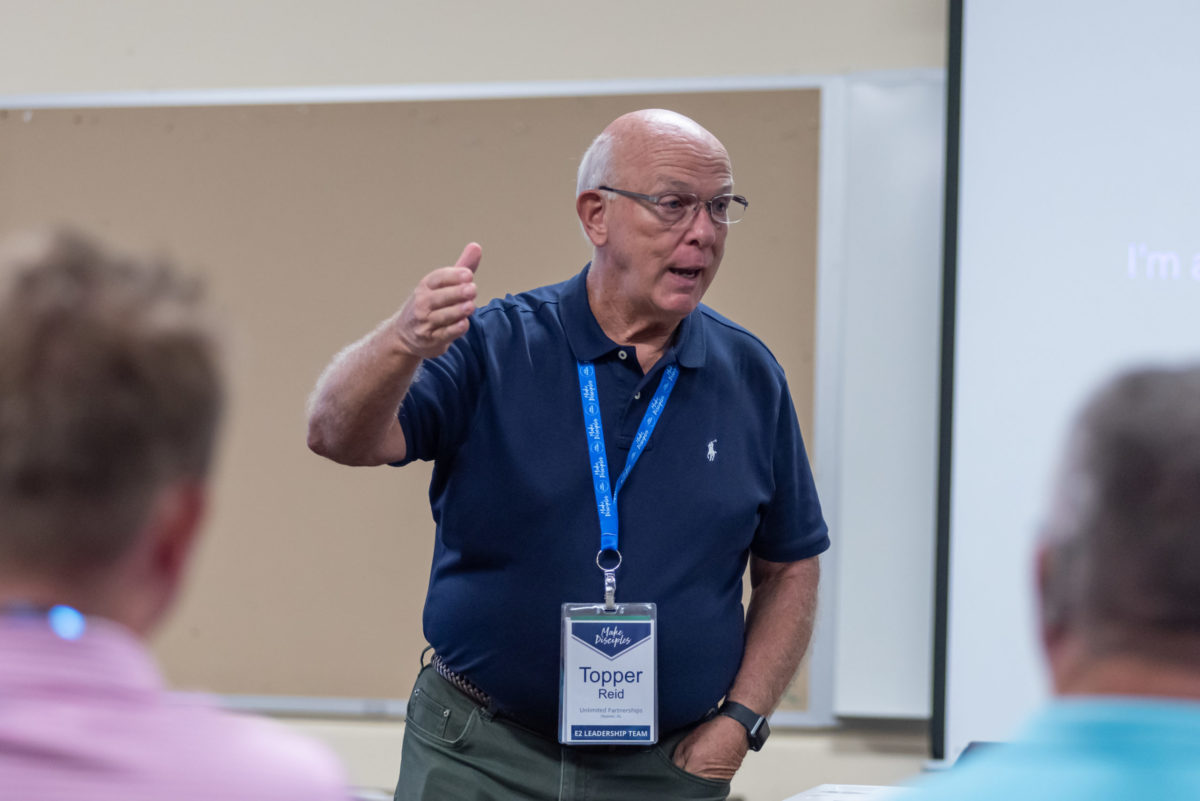Most people know what a small group is, though small groups are as varied as those who participate in them.
The common denominator is that they are focused on training, connection and striving to grow.
In “Reach Magazine” (a publication of the Southern Baptists of Texas Convention), Shane Kendrix says small groups shouldn’t be part of a church just because people expect them.
6 questions
He suggests asking these six questions before starting:
- Why? The reason to have small groups is to “meet the needs of the individuals, the group, the church and the community,” Kendrix said, “all for the glory of God.” He noted they can be open or closed, with open groups allowing someone to join anytime.
- How? Is it going to be discussion or lecture? Will there be homework?
- What? Kendrix says “the topic is defined by the type of group as much as the group is defined by the topic.”
- Who? Is it going to be men
only, women only or mixed gender? Is it going to have a specific age range or be intergenerational? - When? Think it through before choosing a time. Young adults could probably meet later than a senior adults group. Keep an open mind about options.
- Where? The location affects who can be there and the discussions that can be included.
Topper Reid, vice president of the church coaching division for Unlimited Partnerships, offers tips for ways to grow small groups once they have started:
- Everyone should wear name tags every week. Don’t think about whether current members need them or not — expect that there will be visitors and learning names can make them more comfortable.
- Pray for three people “in your traffic pattern” by name and think about ways to invite them.
- Choose curriculum with your target group’s needs, interests and availability in mind.
Engage members
- Get contact information from visitors and assign someone to follow up with each one during the following week.
- Engaging the group not only helps them remember what was discussed, but also works toward fellowship and getting to know each other. Everyone needs to be involved in some way. If lecture is a component, offer a way to take notes.
- Give fellowship times a purpose, making an effort to invite guests and those who don’t come often. Having them once a month will increase connection, and a theme can be helpful.
- Take prayer requests each week and have a method to share the
requests with the group so they can be praying. - Check in on those who stop attending. Ask if they need prayer. Don’t tell them to call if they need anything — have plans for members’ crises.
Reid also noted the goal of each small group is to multiply, suggesting that when 25 attend regularly, 6–8 need to start a new group.
To that end, he said, allow an associate teacher to lead 30%–50% of the time. This allows the associate teacher to gain experience for leading a new group and provides continuity for the long term.
Scripture-grounded
In a Lifeway Adults article, Rick Howerton, a church consultant for the Kentucky Baptist Convention, suggests group leaders memorize three key verses to help them remember their mission.
- “And they devoted themselves to the apostles’ teaching, to the fellowship, to the breaking of bread and to the prayers. … Every day they devoted themselves to meeting together in the temple complex and broke bread from house to house. … And every day the Lord added to them those who were being saved” (Acts 2:42–47).
- “And let us be concerned about one another in order to promote love and good works, not staying away from our worship meetings, as some habitually do, but encouraging each other, and all the more as you see the day drawing near” (Heb. 10:24–25).
- “And what you have heard from me in the presence of many witnesses, commit to faithful men who will be able to teach others also” (2 Tim. 2:2).
Finally, keep in the forefront that God is in control.
Steve Gladen, pastor of the small group community at Saddleback Church in Lake Forest, California, and author of several books on small groups, offers additional tips at the website smallgroups.net.
Gladen encourages leaders to remember: “You were not selected to lead this group on your own. God chose you. He will be with you. Trust in His power and lean on Him for support.”






Share with others: